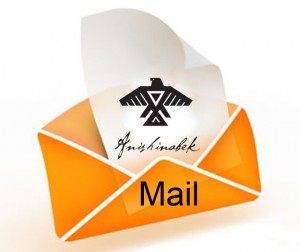Gichi-Naaknigewin (First Nation Constitutions). Time to Implement.
Well now that we have a number of Gichi-Naaknigewins (Constitutions) it’s time to implement them. Let’s show the world that we as Nations are in control and no longer wish to be under the control of the Indian Act and the Federal Government.
There are a number of great articles and books out there that have fantastic ideas on how this should be done, can be done. Books such as Drawing Out Law, Canada’s Indigenous Constitution and Recovering Canada The Resurgence of Indigenous Law for example by fellow Anishinaabe John Borrows.
Those First Nations in Anishinabek Territory who have made laws, have great difficulty enforcing them at this time. We need our own judicial system. Yes, we have justice circles and that is a good thing but we need to do more than that. We need to build a relationship with the Province and the Federal Government and work towards implementing our own laws and system.
The relationship between the three constitutions (Anishinabek Nation and First Nation Constitutions and the Canadian Constitution, the Constitution Act, 1982) can peacefully co-exist.
There is an argument that can be made that First Nation Constitutions are an expression of a right pursuant to section 35 of the Canadian Constitution. Therefore the First Nation constitutions are representative of a “third order of government” (Federal, Provincial and First Nations). They are parallel and each is equal on authority in their respective areas of jurisdiction.
We argue and assert that, as an element of our inherent right of self-government (and as one of the rights protected at section 35(1) of the Constitution Act, 1982), we have a right to have our own constitutions and that this right is part of a more fundamental right of self-government or self-determination. Entering into treaties did not mean Nipissing First Nation gave up any rights to govern themselves and, having said this, also does not mean that Canada or Ontario would necessarily agree with the laws we may enact pursuant to our constitutions.
The United Nations Declaration on the Rights of Indigenous Peoples (UNDRIP). The first of UNDRIP’s 46 articles declares that “Indigenous peoples have the right to the full enjoyment, as a collective or as individuals, of all human rights and fundamental freedoms as recognized in the Charter of the United Nations, the Universal Declaration of Human Rights(4) and international human rights law.” The Declaration goes on to guarantee the rights of Indigenous peoples to enjoy and practice their cultures and customs, their religions, and their languages, and to develop and strengthen their economies and their social and political institutions. Indigenous peoples have the right to be free from discrimination, and the right to a nationality.
Let’s get it done.
Baamaapii (later)
Arnold May


